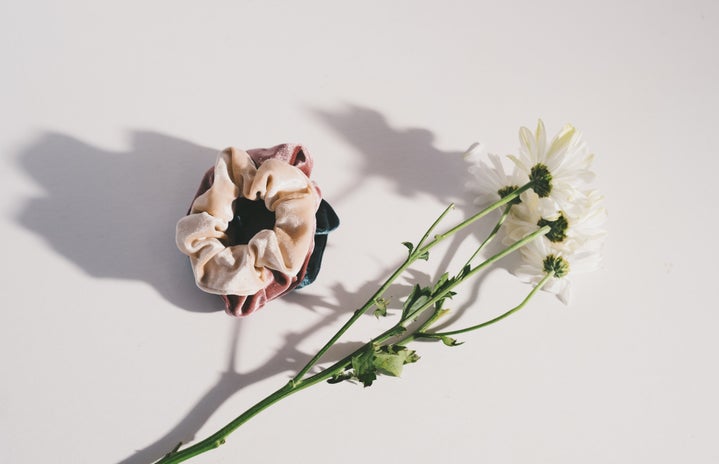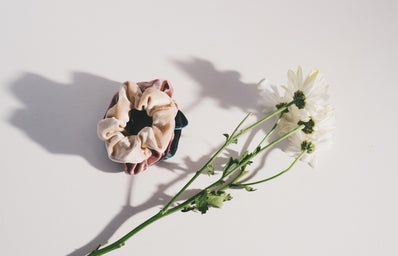Over the last few years, I’ve seen posts made by women in a range of social media sites (Tumblr, Twitter, Reddit, Instagram) on their experiences having recently regained and reclaimed their interest in the colour pink. For most of these women, pink was a colour that they had loved in their childhood but eventually ‘grew out of’ as they matured and became more aware of the social perceptions surrounding the colour pink.
Upon seeing these posts, I related to them on a personal level as I, too, have gone through a similar process at some point in my 21 years of life. While many of those who know me associate me with the colour pink and stereotypically feminine things (people who shame my love for chick flicks, I’m looking at you), it may come as a surprise that I only slowly started to come to terms with my love for such things in 2018. Having had the time to reflect on myself and my identity during the long break after O levels, it became clear to me that I shouldn’t be ashamed of whatever I liked; literally nobody has the right to tell me what I should or should not like, except myself. In fact, everyone has the right to like whatever they want and should not be shamed for it.
A Look at my childhood and teenage years
As a kid, I absolutely adored the colour pink; my favourite characters on TV were all chosen because 1. They were girls and 2. They wore pink. Some of these characters include Princess Aurora, Pink Ranger, Flora (from Winx Club) and so on. Apart from that, I was a big fan of all the stereotypically feminine media characters that were fed to me by society, including princesses, fairies, dolls (I still really love dolls!) and chick flicks (like The Princess Diaries series). However, as I grew older, I unconsciously began to change.
If I had to guess, it was probably this need to be like the other girls at my school who had abandoned these interests in favour of seeming ‘more mature’, thinking ‘girly’ interests were childish. I also think that the demonisation of hyper-femininity in the media (think Regina George, or Sharpay Evans) coupled with the popularisation of the ‘not-like-other-girls” trope that the protagonist/love interest possessed in popular media had an impact on my perception of femininity. Such mixed signals sent by society thus began to alter my young mind, associating ‘girly’ with a negative meaning. While it may be too much to cover the topic of the demonisation of hyper-femininity in this article, I find that Shanspeare on Youtube does a great job at discussing the topic.
However, I understand that the experience varies according to individuals. For others, it may have been the early comprehension of the social pressure to conform to suitable standards of femininity. This pressure could have led to a dislike of conformity, a dislike of being deemed as ‘girly’ like all the other girls which led them to reject what they understood (or rather what society imposed) as ‘girly’.
Nonetheless, I was affected quite evidently, and this partially influenced and manifested in my style. I transitioned into darker colours like dark green or black and adopted the 2010s tumblr hipster/grunge style in my early secondary school years. I would say that this was my attempt at ‘maturing’ to fit in with my peers, as well as break away from whatever ‘girly’ habits I deemed too embarrassing for my teen self. Despite following what I thought was trendy then, it apparently wasn’t enough for me to fit in or become ‘popular’ like other girls.
Looking back on it now, even if I had tried harder and had not stopped at superficially changing my looks in response to social pressures, I wouldn’t have been able to fit in anyways. That’s the nature of social constructs—they force you towards unrealistic goals, deceiving you into thinking that they are achievable, and when you fail to achieve them you end up with a lower self esteem.
In addition, this mindset that society inculcates in many other girls around the world, including myself, results in internalised misogyny. Our decision whether or not to conform to socially dictated femininity or rather, how well we conform to it ends up pitting us against each other. This notion of women vs women was especially apparent in the ‘I’m-not-like-other-girls’ phenomenon which came about around 2018-2019. During this time, memes about being ‘quirky’ and ‘not-like-other-girls’ emerged. Initially, this was a way for girls who prided themselves on diverging from ‘the norm’ to exercise their superiority on those who conformed, establishing themselves as unique and flawless. Eventually, other memes satirising the original format (a juxtaposition of the ‘quirky’ girls against girls who conformed to ‘the norm’) began to come about too, turning it into a big joke.
However, the entire phenomenon reveals a deep-seated sense of internalised misogyny. The ‘quirky’ girls dissociate themselves from women and whatever they deem feminine because they view them as ‘bad’, showing how they have absorbed all the external hate directed towards women and their interests. However, this mindset divides women and totally blinds us to the fact we should all be rebelling against this system which is detrimental to our selfhood and to women as a collective.
What should I do next? Moving past it and embracing femininity
With reference to an interesting text I read recently called the “Feminist Manifesto”, in which the author, Mina Loy, declares through her speaker that “The women who adapt themselves to a theoretical valuation of their sex as a relative impersonality, are not yet Feminine” and that women should “seek within [them]selves to find out what [they] are”. Simply put, Loy is saying that socially dictated femininity is NOT true femininity as true femininity is deeply personal and is decided by the woman herself.
As fashion was my preferred method of self expression, it helped me a lot throughout my process of figuring myself and my femininity out. I began to like whatever I wanted to, rather than struggling to follow trends amongst my peers. I looked towards Haim, a band whose retro style of dressing left a deep impact on me, as well as towards films and music I liked from the 80s. Right before entering JC, I began reevaluating my interests and decided to reclaim everything from my childhood because there was nothing I had to be embarrassed about (yes, I will become a princess again). I even got into the ultra-feminine style seen in J-fashion (lolita, fairy kei, cult party kei) and began to re-embrace dolls and other cutesy TV memorabilia from my childhood shows.
This gradual change in my mindset fits in with the aforementioned 2020 phenomena about ‘getting over your hatred for pink’ and reclaiming it as a colour you love. Honestly, seeing all these posts gave me a sense of comfort as I related to the process that they went through. It also makes me proud that our current generation has begun to recognise and move forward from the misogyny that society has inculcated in us.
Although one may wonder how liking pink, a colour stereotypically associated with females, allows for female emancipation, the key thing is your mindset and rationale behind liking pink (which also extends to anything else that aligns with social stereotypes). It’s okay to do or like things that are stereotypically feminine, but the important thing is that you, as a female, attribute your own personal meaning to it. By freely liking the things you like and resisting social pressures to conform, I would already say that that’s growth, and I commend you for that!
So, go out there and live your best life! Do what you want, reclaim and redefine your femininity and be unabashedly yourself, because you, too, have the capacity for growth within you, and the journey towards rediscovering yourself is just a small step away!



